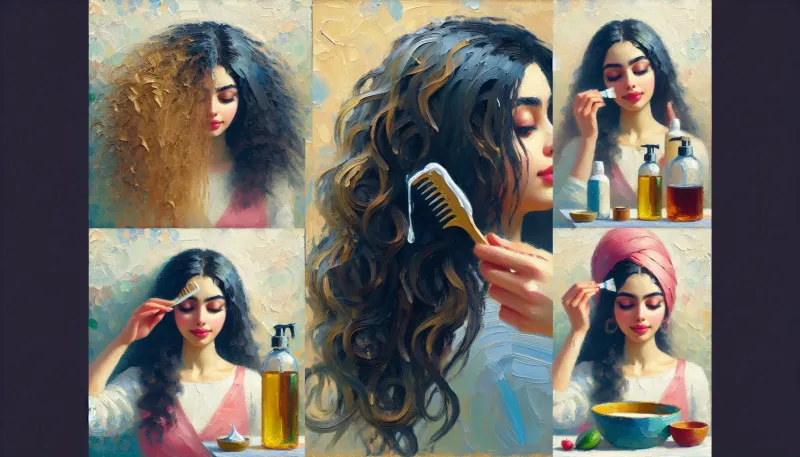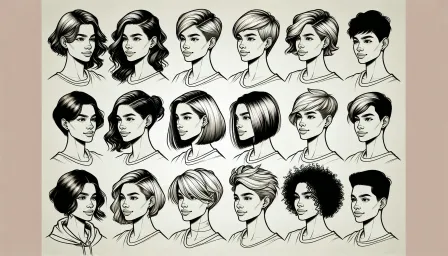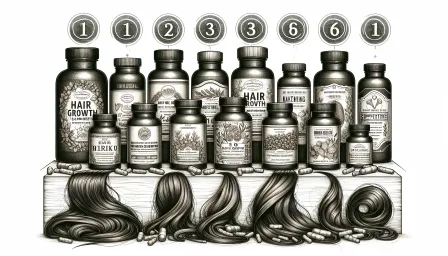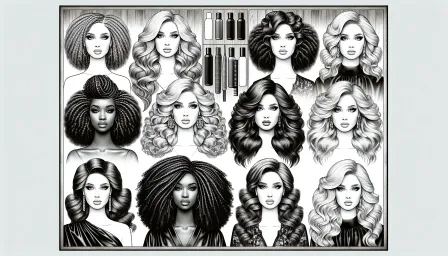Expert Tips on What to Do for Frizzy Hair

Discover expert tips on what to do for frizzy hair. Learn how to manage and prevent frizz with these professional and trusted solutions.
Frizzy hair can be a daily battle for many people. Whether it's due to humidity, improper hair care, or genetics, managing frizz can seem like a daunting task. This article will provide expert tips on what to do for frizzy hair, offering actionable steps and advice to help you achieve smoother, more manageable locks.
Understanding the Causes of Frizzy Hair
Humidity and Environmental Factors
The most common cause of frizzy hair is humidity. Hair fibers swell in the presence of moisture, leading to that unruly, frizzy appearance. Environmental factors such as pollution and exposure to harsh weather conditions can also exacerbate frizz.
Hair Type and Texture
Your hair type and texture play a significant role in how prone your hair is to frizz. Curly and wavy hair types are more likely to experience frizz due to their natural structure, which makes it easier for moisture to penetrate and disturb the cuticle layer.
Improper Hair Care Practices
Using the wrong hair care products or tools, such as harsh shampoos, over-washing, and excess heat styling, can strip your hair of its natural oils and cause breakage, leading to frizz. Avoiding these practices can help maintain the integrity of your hair’s cuticle.
Effective Hair Care Techniques to Reduce Frizz
Use Moisturizing Shampoos and Conditioners
Select shampoos and conditioners that are specifically formulated for frizzy hair. Look for products containing nourishing ingredients like argan oil, shea butter, and glycerin, which help to lock in moisture and smooth the hair shaft.
Incorporate Weekly Deep Conditioning Treatments
Deep conditioning treatments replenish moisture and strengthen the hair. Applying a hydrating mask once a week can significantly improve the texture of frizzy hair. Focus on products with ingredients like keratin, coconut oil, and proteins.
Avoid Heat Styling and Chemical Treatments
Excessive use of heat styling tools can strip your hair of its moisture, leading to frizz. If you must use tools like hairdryers or straighteners, make sure to use a heat protectant spray and opt for lower temperature settings. Similarly, limit chemical treatments, like coloring or perming, as these can damage the hair cuticle.
Employ the Right Drying Techniques
How you dry your hair can affect its overall health and frizz levels. Instead of rubbing your hair with a towel, gently squeeze out excess water and use a microfiber towel or a cotton t-shirt. Air drying or using a diffuser on a low heat setting can also help minimize frizz.
Brush Hair Properly
Brushing or combing hair when it’s wet can lead to breakage and frizz. Instead, use a wide-tooth comb and gently detangle your hair when it’s damp. Consider brushing your hair before washing to remove any knots, reducing the risk of damage.
Recommended Products for Frizzy Hair
Anti-Frizz Serums and Oils
Products like serums and oils are excellent for taming frizz. Opt for lightweight formulas that contain silicones or natural oils, such as jojoba or argan oil. Apply these products to damp hair, focusing on the mid-lengths and ends to prevent a greasy scalp.
Leave-In Conditioners
Leave-in conditioners provide an extra layer of moisture and protection against frizz. They are ideal for those who have thick or curly hair. Look for products that offer humidity resistance and frizz control while being lightweight enough not to weigh the hair down.
Sulfate-Free Shampoos
Sulfates are harsh detergents found in many shampoos that can strip hair of its natural oils. Using sulfate-free shampoos helps maintain your hair’s natural moisture balance and reduces the risk of frizz.
Lifestyle Habits to Support Healthy Hair
Maintain a Balanced Diet
Your diet can impact the health of your hair. Consuming a diet rich in vitamins and minerals, such as Vitamin E, omega-3 fatty acids, and biotin, can support hair health from the inside out. Foods like nuts, seeds, fish, and leafy greens are excellent choices.
Stay Hydrated
Hydration is key for overall health, including your hair. Drinking enough water daily helps keep your hair hydrated and less prone to frizz.
Get Regular Trims
Regular trims help to remove split ends and reduce hair breakage. This can lead to healthier-looking hair with less frizz. Aim to trim your hair every 6-8 weeks.
Additional Tips and Tricks
Sleep on a Silk Pillowcase
Silk pillowcases create less friction than cotton, helping to reduce frizz while you sleep. They also help maintain your hair’s moisture balance, leading to smoother hair in the morning.
Use a Cold Water Rinse
After washing your hair, finish with a cold water rinse. Cold water helps to seal the hair cuticle, reducing frizz and adding shine.
Protect Hair from Environmental Damage
Use hats or scarves to protect your hair from harsh environmental factors like UV rays and wind. Products with UV filters can also provide an additional layer of protection.
Conclusion
Managing frizzy hair requires a combination of proper hair care techniques, the right products, and supportive lifestyle habits. By understanding the causes of frizz and implementing these expert tips on what to do for frizzy hair, you can achieve smoother, healthier locks. Remember, consistency is key, and with time, you’ll find the best routine that works for your unique hair type.



























